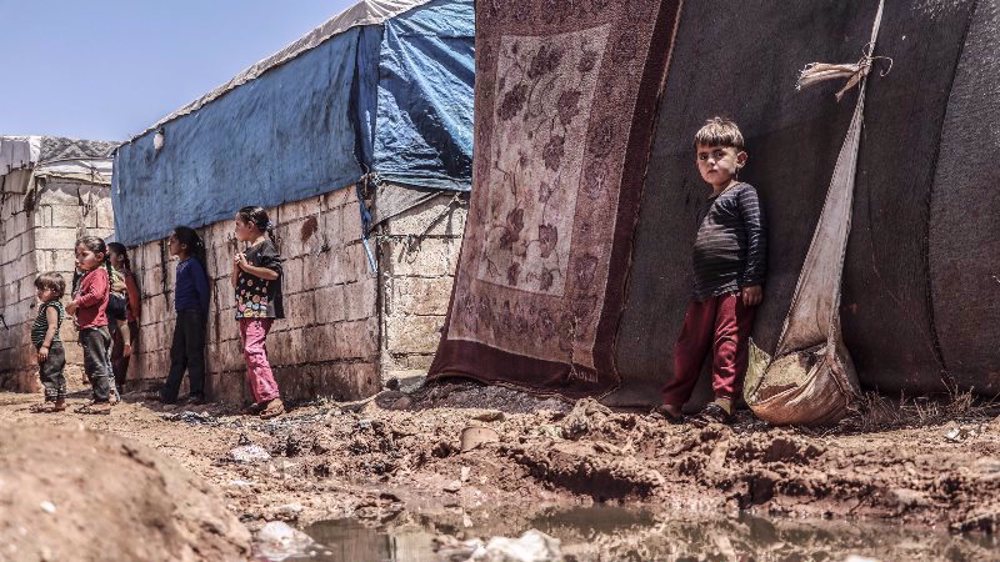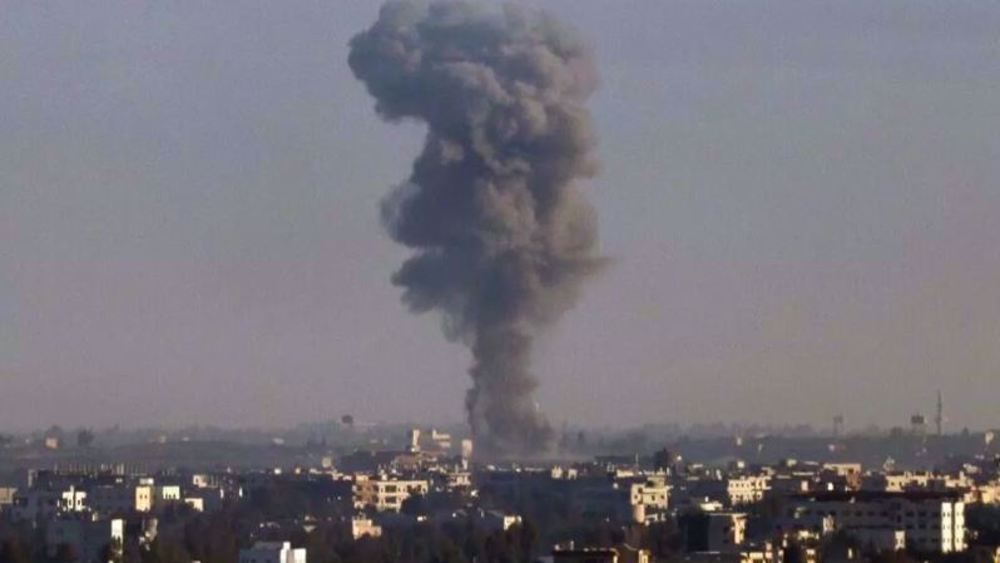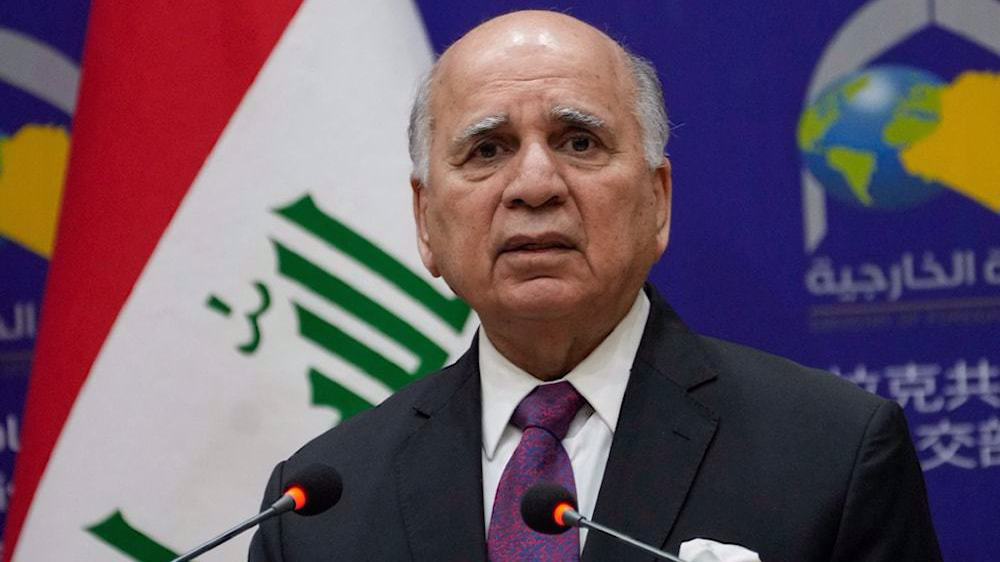UN Security Council rejects Russian-backed resolution on aid delivery to Syria
The UN Security Council has rejected a Russian-drafted resolution that would extend a cross-border aid delivery mechanism for a six-month period after Russia — along with China — vetoed a relevant Western-drafted document, which Moscow argued ignored the realities on the ground in the Arab country.
On Wednesday, seven countries, including the United Kingdom, the United States, France, Belgium, Germany, the Dominican Republic and Estonia voted against the draft resolution, which needed at least nine ‘yes’ votes.
The Russian-proposed resolution garnered support from China, Vietnam and South Africa plus its own vote. Tunisia, Niger, Indonesia and Saint Vincent and the Grenadines abstained.
The vote was carried out in written format due to coronavirus restrictions at the UN headquarters.
The vote came after Russia and China vetoed a resolution drafted by Germany and Belgium that would maintain two border crossing points from Turkey — namely Bab al-Salam and Bab al-Hawa — to deliver humanitarian aid to Syria for a year.
The mechanism for the cross-border humanitarian operations in Syria had been established by the Security Council in July 2014. The authorization is set to expire on Friday.
The Russian resolution sought to extend the mechanism of humanitarian deliveries to Syria’s affected regions for another six months and limit the number of crossing points to just Bab al-Hawa checkpoint on the Turkish-Syrian border.
Russia argued that the 2014 mechanism needed an update in accordance with the fast-changing situation in Syria, which has managed, over the past years, to liberate most parts of its soil from foreign-backed militants on the back of Russian and Iranian assistance.
Moscow had said earlier that it expected the UN and Damascus to work out alternative routes for aid delivery at the request and with the permission of the recipient state, while respecting Syria’s territorial integrity.
Moscow believes that the Bab al-Hawa crossing could cover all of the humanitarian needs of the population in Syria’s northwestern province of Idlib -- the last militant bastion in a nine-year war.
Militants plan provocation in Idlib: Russia’s military
Meanwhile, the head of the Russian Defense Ministry’s Center for Syria Reconciliation warned on Wednesday that the foreign-backed Takfiri terrorists of Hayat Tahrir al-Sham (HTS), formerly known as al-Nusra Front, are preparing a provocation to once again accuse Damascus of using chemical weapons against civilians in Idlib.
“According to the information that the center for reconciliation of the opposing sides has received from locals, militants from the Hayat Tahrir al-Sham terrorist organization plan staging provocations near the settlements of Sfukhon, Fatterah and Fleifel in the Idlib province with an aim to accuse the governmental forces of using chemical weapons,” Rear Admiral Alexander Sherbitsky said at a briefing.
The Russian military said that the terrorists have already created at least 15 improvised explosive devices, stuffed with unidentified toxic agent.
The Syrian government surrendered its stockpiles of chemical weapons in 2014 to a joint mission led by the UN and the Prohibition of Chemical Weapons (OPCW), which oversaw the destruction of the weaponry.
However, Western governments and their allies have never stopped pointing the finger at Damascus whenever an apparent chemical attack has taken place.
Syria surrendered its entire chemical stockpile in 2013 to a mission led by the Organization for the Prohibition of Chemical Weapons (OPCW) and the United Nations.
Several reports have previously suggested the use of chlorine against civilians by anti-Damascus militants.
Russia rejects UN report asserting war crimes in Syria
In another development on Wednesday, Russia’s Foreign Minister Sergei Lavrov censured as “unreliable” a UN report that accused Moscow and Damascus of war crimes in Syria.
His remarks came a day after the UN Commission of Inquiry on Syria claimed in a report that Syrian and Russian warplanes had carried out airstrikes on civilian population in Idlib which amounted to war crimes.
Lavrov, who was speaking at a news conference in Moscow, said the UN commission based its report on data from social networks and anonymous sources, “which cannot be checked and therefore cannot be reliable.”
The Russian top diplomat said that the commission was established by non-consensual decision and its mandate and methods of work provokes a lot of questions.
“The decision to establish this commission was pushed by Western countries that have taken a course for regime change in Syria. By voting in the UN Human Rights Council, a mechanism was created with the goal of searching for dirt on Damascus and those they call ‘allies of Damascus,’” he said.
Moscow stands for the necessity to examine any issues of any conflict basing it on trustworthy particulars and data, which can be confirmed by the body providing them, lavrov said.
Russia has been targeting positions held by Western-sponsored terrorist groups inside Syria at the request of Damascus since September 2015.
Hamas hails Gaza’s victory over Israel in genocidal war, its forcing enemy to agree to ceasefire
'Capitulation': Israeli officials and media concede Gaza defeat as truce unfolds
'Gaza has won': Social media users react to ceasefire with mix of relief, joy
Iran seeks South Korea’s assistance for AI, fiber-optic projects
VIDEO | Iran's 'Eqtedar' (Power) maneuver
Israel hits HTS military target in Syria for 1st time since fall of Assad
VIDEO | Press TV's news headlines
Israel has slaughtered 13,000 students in Gaza, West Bank












 This makes it easy to access the Press TV website
This makes it easy to access the Press TV website